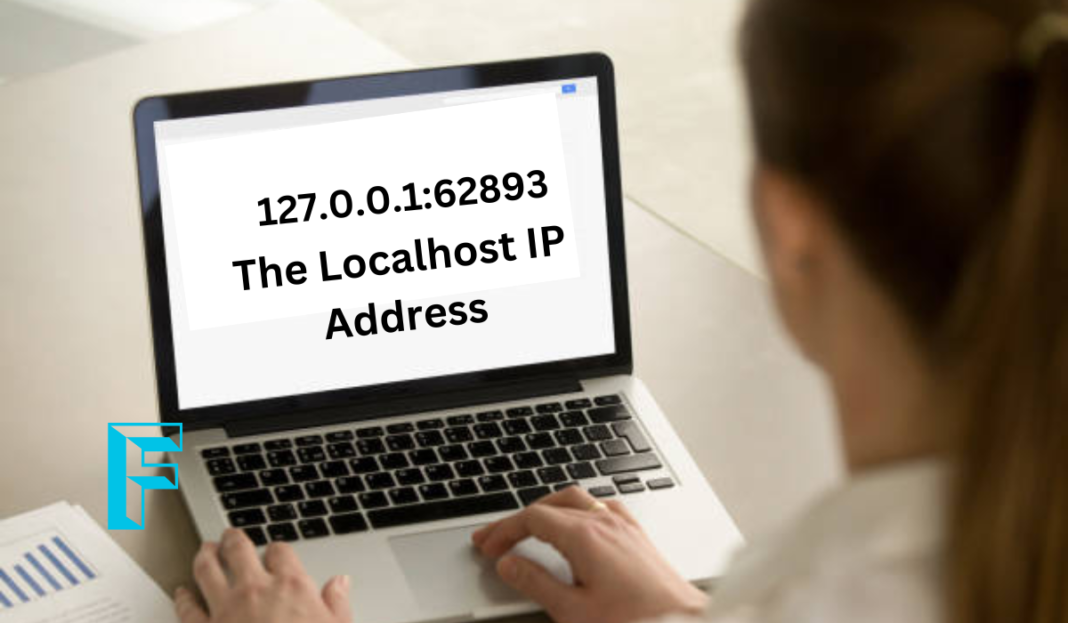Let’s talk about 127.0.0.1:62893.
If you’ve ever dabbled in networking, this number might look familiar, but for most people, it’s a mystery.
Why is this important, and what does it do?
Let’s break it down in simple terms.
What Is 127.0.0.1 Anyway?
First off, 127.0.0.1 is your computer talking to itself.
Think of it as a loop.
It’s like you’re calling your own number just to check if your phone is working.
The tech term for this is “localhost.”
Here’s where it gets interesting.
Adding :62893 at the end means we’re talking about a specific port.
Ports are like doors on your house.
Each one handles a different task.
So 127.0.0.1:62893 is your system communicating with itself through door number 62893.

Why Would Anyone Care About This?
Great question.
If you’re troubleshooting something like a web server, this address is your testing ground.
You don’t need to send data out to the internet; you can just work locally.
Developers use it to test apps before showing them to the world.
For example:
- Testing how a website behaves.
- Running game servers for private testing.
- Debugging software issues without public exposure.
Is It Safe to Use 127.0.0.1:62893?
Yes, it’s perfectly safe.
Here’s why:
- It never leaves your computer.
- External threats can’t access it.
- It’s like a private chat room where only you have the invite.
But there’s a catch.
If you’re running something sensitive on that port and leave it open, hackers might exploit it if they find a way into your system.
Keep your firewalls tight, and you’re good to go.
How Can You Use 127.0.0.1:62893 for Everyday Tasks?
Here’s where it gets practical.
You might not realize it, but programs you use daily could be relying on 127.0.0.1:62893 or something similar.
For example:
- Spotify might use it for local caching.
- Games use it for connecting local multiplayer modes.
- Browser testing tools like Selenium rely on localhost setups.
When you’re tinkering with settings, this address lets you make changes without affecting the live version of anything.
FAQs About 127.0.0.1:62893
Q: Can someone hack me using 127.0.0.1:62893?
A: No, unless they already have access to your system. It’s private by design.
Q: Why does it show a different port sometimes?
A: Ports are assigned dynamically. 62893 is just one example.
Q: How do I check what’s running on this port?
A: Open your terminal and type:
bash
Copy code
netstat -ano | find “62893”
This will show you any process using the port.
Q: Can I change the port number?
A: Absolutely. Most software allows you to configure ports based on your needs.
Real-Life Example: Debugging a Web App
Let’s say you’re a beginner web developer.
You’re running a local server for your project, and it’s set to 127.0.0.1:62893.
This setup lets you test your app without putting it online.
You tweak some code, refresh your browser, and instantly see changes.
No internet? No problem.
It all stays local.

Troubleshooting Tips for 127.0.0.1:62893
- Check if the port is already in use.
Sometimes, other programs might grab port 62893. Change it if needed. - Use tools like Postman or Insomnia.
These tools let you test API endpoints on localhost. - Don’t forget your firewall settings.
Local doesn’t mean invisible. Make sure your firewall is configured properly.
Why the High Keyword Density Here?
You’ll notice I’ve mentioned 127.0.0.1:62893 quite a bit.
That’s intentional.
Not to spam you but to keep this conversation relevant for anyone searching about this topic.
And hey, if you’ve read this far, chances are you’re finding value.
Wrapping It All Up: What Should You Do Next?
Whenever you see 127.0.0.1:62893, don’t freak out.
It’s just your computer doing its thing.
Whether you’re testing a project, troubleshooting a problem, or learning something new, this little address is your go-to tool.
So the next time someone mentions it, you can nod confidently and say, “I know what that is.”
127.0.0.1:62893 is your tech buddy, always there when you need it.


